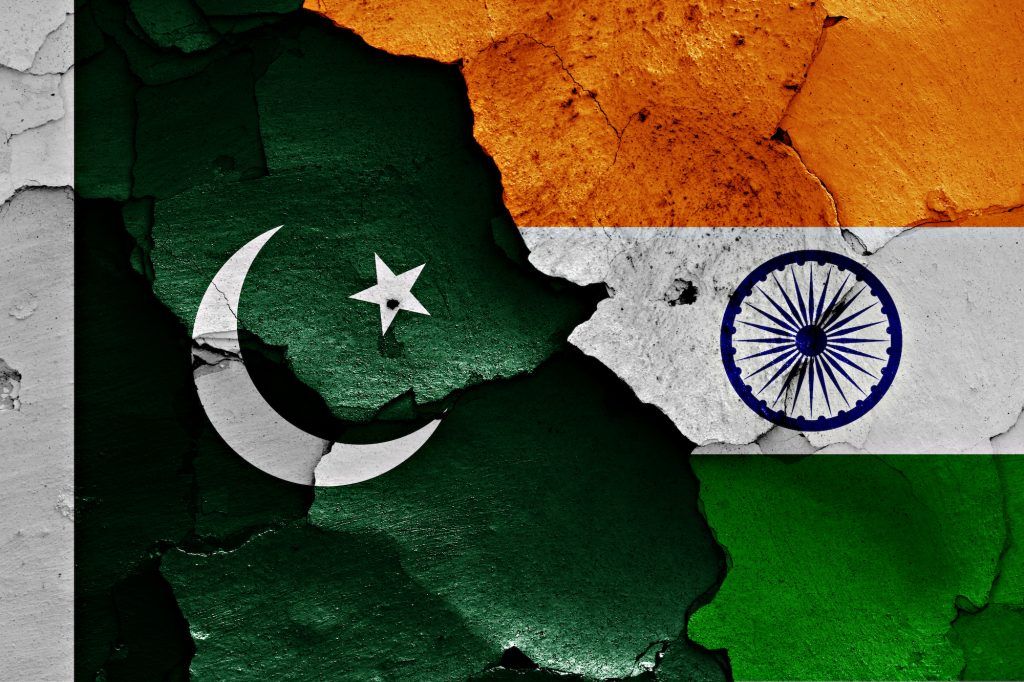While the world watched US-North Korean negotiations, two nuclear powers squared off
By Matt Field | February 28, 2019

While audiences around the world watched the breathless media coverage of US President Donald Trump’s follow-up summit with North Korean leader Kim Jong Un, the proud owner of perhaps 10-20 nuclear weapons, they may have missed escalating military tensions between India and Pakistan, two countries with almost 300 nuclear warheads between them.
The recent crisis started when a suicide bomber killed dozens of Indian paramilitary troops in Indian controlled Kashmir on Feb. 14. India and Pakistan have been fighting over the mountainous border region since they gained independence from Britain in 1947. A prince in Kashmir decided to join up with India, but the the United Nations has said a referendum should be held.
India escalated its response to the suicide bombing and sent aircraft to attack a Pakistani town earlier this week. Officials claimed to have destroyed a camp belonging to Jaish-e Mohammad, the terrorist group that claims to have orchestrated the suicide bombing. It was the first such Indian air attack since 1971, and comes as Indian Prime Minister Narendra Modi campaigns in national elections scheduled for May. Indians celebrated news of the attack, but questions have since surfaced about whether the Indian military really did much damage. While India claims to have killed many terrorists, Reuters reports that residents in Jaba Village, in Balakot, Pakistan, dispute India’s claims to have caused many casualties.
The day after the raid, Pakistani forces shot down at least one Indian fighter jet, capturing the pilot. Videos of the pilot being dragged by a mob and interrogated by security forces are circulating online. Pakistan has since said the pilot will be released. Pakistani Prime Minister Imran Khan pointed toward the nuclear arsenals both countries maintain as he called for dialogue in a televised speech, The New York Times reported.
“All big wars have been due to miscalculation. No one knew how the war would end,” Khan said. “My question to India is that given the weapons we have, can we afford miscalculation?”
Meanwhile, Trump told reporters in Vietnam that he had “reasonably attractive news” that the two sides would back down. He was preparing to leave empty-handed after negotiations with Kim fizzled.
Pakistan now has about 140-150 nuclear warheads, according to the Bulletin of the Atomic Scientists’ Nuclear Notebook. That figure could grow to 220 to 250 by 2025, the notebook’s authors write. A lot depends on how India builds up its nuclear and other military forces. India, meanwhile, probably has between 130-140 nuclear warheads and is modernizing its capabilities, keeping a cautious eye on China, in addition to its traditional nemesis, Pakistan.
Publication Name: The New York Times
To read what we're reading, click here
Together, we make the world safer.
The Bulletin elevates expert voices above the noise. But as an independent nonprofit organization, our operations depend on the support of readers like you. Help us continue to deliver quality journalism that holds leaders accountable. Your support of our work at any level is important. In return, we promise our coverage will be understandable, influential, vigilant, solution-oriented, and fair-minded. Together we can make a difference.
Keywords: Donald Trump, Imran Khan, India, Kashmir, Narendra Modi, Pakistan, Vietnam
Topics: Nuclear Risk, What We’re Reading














